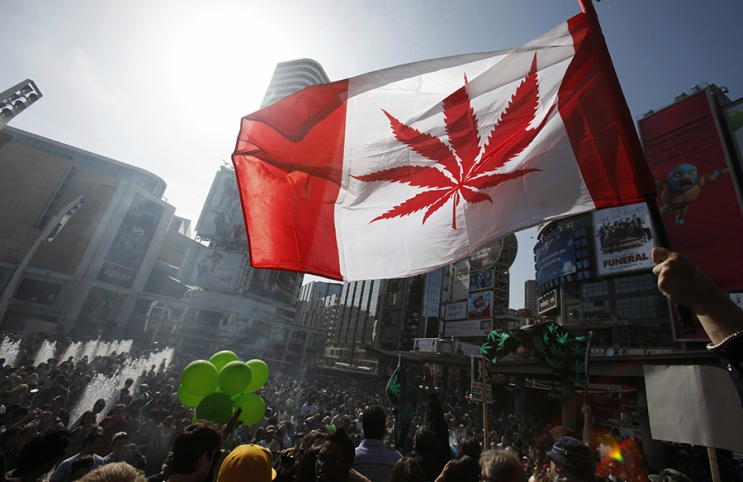CBD Rules And Regulations Face More Hold Ups From The FDA
In a federal trademarking lawsuit for a CBD drink company, a new ruling has been found. This ruling for the CBD beverage company displays how the FDA is taking its time to declare particular rules. This is in regards to rules for certain hemp-derived products. Which is creating problems for the growing CBD industry.
There are many CBD companies but one, in particular, sells CBD-infused teas. This company submitted an “intent to use” trademark application. However, this attempt was shot down by the U.S. Patent and Trademark Office in May. To which that conclusion was reaffirmed by an appeals board earlier in September.
Now hemp-derived cannabidiol was legalized under the 2018 Farm Bill. Yet the Trademark Trial and Appeal Board stated it continues to be illegal to sell as a beverage under the FDA. As well as under the Cosmetic Act. Due to the fact that the FDA still hasn’t made any laws allowing it. Which meant that the application couldn’t be allowed.
Petitioners tried to make the case that Joy Tea has pure intention to use in lawful commerce. The reason is due to a federal policy change that many is approaching. FDA has stated frequently that it is striving to create statutes to allow CBD in the food supply.—Furthermore, the Trademark Trial and Appeal Board did not accept that as adequate proof.
What Will Come Of This CBD Trademark Issue?
Attorney Larry Sandell of Mei & Mark LLP who is representing Joy Tea was able to shed some light on the matter in a recent interview. Mr. Sandell stated that the ruling overlooks the fact that pharmaceutical companies are regularly afforded the benefit of the doubt. This allows those companies to trademark medicines in development. With a high yield of drugs that haven’t been formally authorized by regulatory organizations.
“We’re not seeking registration. All we’re saying is we intend to use it in legal commerce in the future,” he said. “That intention to have future legal commerce is grounded in a belief that it will be legal in the near future.”
There’s good reason to expect that policy change. Notably within the 36-month time frame with “intent to use” approvals are looked to be conditional. Not only has the FDA itself mentioned it is investigating regulatory pathways to allow for such CBD commerce. But bipartisan legislators have proposed bills this session to initiate a change.
The Food And Drug Administration was mandated under appropriations legislation enacted in 2019. This was done to give an update on its regulatory strategy to CBD, which they did back in March of 2020. The update stated that “FDA is currently evaluating issuance of a risk-based enforcement policy that would provide greater transparency and clarity regarding factors FDA intends to take into account in prioritizing enforcement decisions.”
CBD Trademark Issues Need A Resolution
So the trademark appeals board said that the “issue in this appeal is narrow and simple: whether an applicant for a federal trademark registration can have a bona fide intent to use its mark in commerce on goods that are currently prohibited under federal law but that may, perhaps, become lawful in the future.”
“In the present situation, where some of Applicant’s goods are prohibited under federal law, the record clearly indicates that it is not possible for Applicant to have ‘an intention to use the mark consistent with the [Trademark] Act’s definition of use in commerce’ which requires ‘the bona fide use of a mark in the ordinary course of trade.’”
Petitioners highlighted the evident double-standard for traditional pharmaceutical companies. This double standard refers to the “intent to use” trademarks for non-FDA-approved medications. Nevertheless, they’re also questioning the overall foundation of the board’s case. This is in reference to the regulations used for applications for products that are not currently legal for business.
“There’s the question of if something is per se illegal—and CBD is not per se illegal,” Sandell said. “It’s only not legal to sell by virtue of the fact that the FDA regulations don’t allow you to sell it at this time, just like cancer drugs that haven’t gone through FDA approval.”
[Read More] Youth Cannabis Consumption Has Not Gone Up In Legal States According To A New Study
Final Thoughts On The CBD And FDA Trade Marking Issues
He said that the company has 8 weeks to appeal in federal court, and they plan to do just that. A higher-level court could make the choice to give Joy Tea an intent to use trademark. That result could have big associations for growing industries surrounding potentially soon-to-be-legal substances. Mainly for substances like marijuana and psychedelics. nIt would suggest that companies could be able to trademark products that aren’t currently legal under federal law.
As well as having a meaningful influence on businesses entering the cannabis niche. If the appeal does not work out, that would indicate that the status quote prevails. What this means is means it would put these companies “in a terrible spot,” as Sandell previously mentioned in a previous interview. It would propose, for instance, that a company could acquire another business that plans to sell a cannabis product. Which would be done by using their business name and using it for a legal, but separate purpose.
MAPH Enterprises, LLC | (305) 414-0128 | 1501 Venera Ave, Coral Gables, FL 33146 | new@marijuanastocks.com












